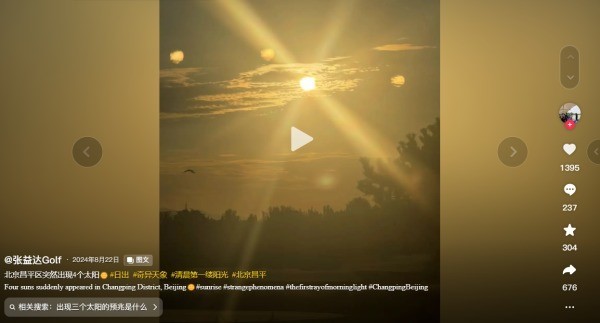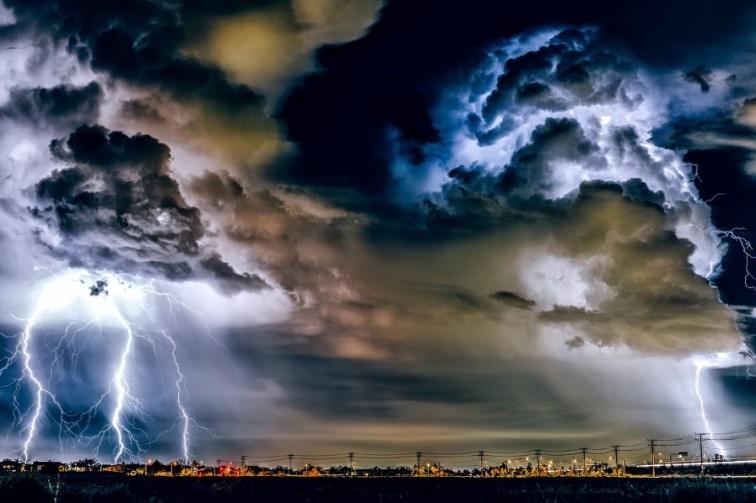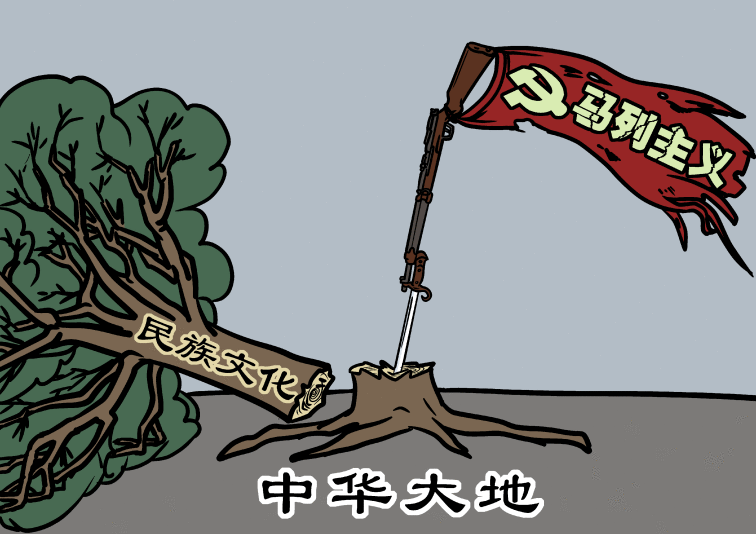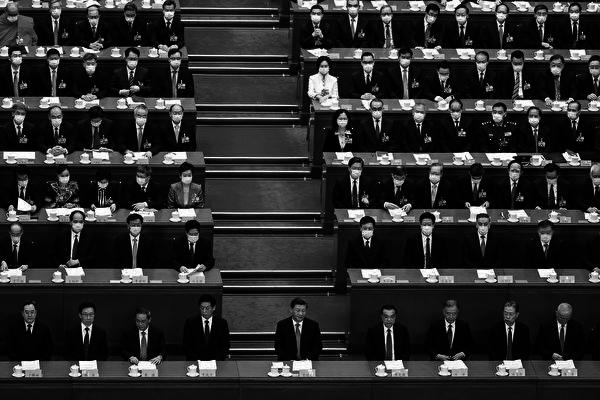During the Cultural Revolution, the Chinese Communist Party (CCP) launched a nationwide campaign to “Smash the Four Olds.” Buddhist statues in temples were mostly destroyed and burned. (Public Domain)
[People News] 7. The Wolf’s Milk We Were Fed
In my family, we could talk and interpret all sorts of issues from ancient times to the modern world, both from China and abroad. Anyone could speak freely on any topic—except when it came to those words that struck terror into the soul: “landlord,” “rich peasant,” “capitalist.” These were never mentioned. Yet, through textbooks, classrooms, movies, and the countless revolutionary songs we sang as children, I was introduced early on to “class,” “revolution,” “hatred,” and “struggle.” Lies and hatred were poured into our heads like a flood. The so-called “love” and “hate” were forcibly implanted into our young hearts, reinforced day after day, year after year—indoctrinated, reindoctrinated, and reinforced again. Gradually, this propaganda diluted and even overpowered the education and nurturing we received at home.
In that era, when truth and falsehood were turned upside down, we sang with our tender young voices: “The moon sails through clouds like white lotus blossoms, Joyful songs drift on the evening breeze, We sit by the high earthen mound, Listening to mother tell of the past. Back then, she had no land. Her life depended solely on her two hands. Her sweat fell on the landlord’s burning fields, yet she ate wild herbs and husks... The winter wind howled like wolves, She wore only ragged clothes... Yet she sewed a fox-fur robe for the landlord, Collapsed frozen and starving in the snow…”
In our textbooks, we were indoctrinated with vivid tales of how evil, ferocious, and cruel landlords were. The young hero Liu Wenxue was strangled to death by a landlord in the production team’s chili field; the despotic landlord Liu Wencai used large and small measuring buckets to cheat peasants and threw those who couldn't pay rent into a water dungeon; then there was “Xi'er,” the gray-haired girl forced into indentured servitude to pay off debt… and many more.
In class, we sang with righteous fury: “The sky is filled with stars, The crescent moon shines bright, The production team holds a meeting, To cry out our sorrows and grievances. The blood and tears of the poor from the old society—hatred that runs deep…”
In our textbooks, society, and every aspect of life, we were taught that the “landlord class” was the mortal enemy of the “poor and lower-middle peasants”—our “class enemy.” In my young and tender heart, I had long placed myself firmly on the side of the “poor and lower-middle peasants,” with young heroes like Liu Wenxue and Xi’er, representing the “proletariat.” I cried over their suffering, clenched my little fists in anger at their enemies, and applauded with tears of emotion for “overthrowing the landlords and redistributing land,” for “liberation.” Our hearts beat with the pulse of the “Republic.” We were proud to be the new generation “born in the new society, raised under the red flag.” We sang from the bottom of our hearts: “Sing a mountain song for X, I compare X to my mother… In the old society, the whip lashed my back, My mother could only weep… X called me to rebel, I snatched the whip and beat the enemy…”
The unprecedented “Cultural Revolution” pushed this manmade hatred and propaganda warfare to its peak. Endless “great denunciation campaigns,” and countless “remember-the-bitterness” meals were held. The “landlord class” was trampled, criticised, and “stomped under ten thousand feet”…
My childhood passed in this era of madness. Our minds were thoroughly cleansed and reshaped.
But when the harsh reality connected me personally with the landlords described in those songs as murderers and tyrants, my youthful pride instantly collapsed. A wave of darkness fell over my vision and heart.
8. Skipping School
When the last silhouette of southbound geese disappeared in the sunset sky and their final cry faded into the air, winter arrived quietly in the North.
That year, winter came early. People said that an early winter meant a cold one. After a heavy snowfall, everything lost its true colour. Beneath the blue sky, a world of silver and white stretched out—a vast expanse that would remain frozen for half a year.
I carried my schoolbag, walking to school with a crunching sound under my feet as the snow creaked. Frost had already coated the hair on my forehead and cheeks, and my breath rose in streams that vanished into the wind.
That day, I left home early and trudged gloomily toward school. The campus was still empty. Every day at this hour, I and the student on duty would arrive first, light the classroom stove, clean out the ashes, and pick out unburned coal clumps from the cinders to be reused—the rest went into the school’s big trash pit. Often, I’d also rummage through the coal piles behind other classes to salvage usable coal. Every day, I could fill a basket.
By then, the stove would be burning brightly, and the classroom would be warm. One by one, classmates would arrive, take off their hats, stomp the snow from their boots, and hold their red, frozen hands near the stovepipe, chatting and laughing—the start of another happy day.
But not today. That day, I stood at a distance, looking at the familiar classroom, unwilling to step inside. I wandered the campus aimlessly. When I passed the big trash heap, I saw an old woman with white hair squatting in the place where I used to dig for coal, her silver hair fluttering in the wind. She scraped through the snowy ash pile with a wire rake, collecting not just coal bits but scraps of paper and cloth.
I knew this old lady. She was the one my mother and grandmother often helped. Grandma said she was all alone—no children, no family—and survived by collecting scraps, often going hungry. My mother once said, “If I didn’t have six children to raise, I’d bring that white-haired old woman home to care for her. She’s so pitiful.”
Grandma replied, “Let’s keep helping her when we can. If she runs out of food, we’ll give her some.”
I stood silently, watching her bony frame and wobbly steps as she searched. I thought of my mother and grandmother’s kindness and felt an ache in my heart.
As she passed by, the old lady looked at me and smiled gently, “Child, you're here so early?”
“Good morning, Grandma,” I whispered. Watching her figure fade into the distance, my mood sank lower.
Students began to arrive in small groups. I quickly turned and walked toward the back gate, fleeing the school grounds like escaping a disaster.
On the street, cars, horses, and people bustled past. The shops were still closed. I wandered aimlessly, not knowing where to go. The farther I walked, the colder I felt. The snow underfoot kept crunching…
I finally stopped in front of the city’s largest department store, unable to withstand the biting cold. I crouched in a corner, facing the bleak morning sun, my feet numb and aching like cat bites. I shivered, my body trembling. I squatted and curled my hands into my coat, trying to warm up. I thought of the warm classroom, the sound of students reading aloud, and the laughter of my friends. But then the humiliation returned to my mind like a nightmare. I couldn’t stop the tears.
That day we were filling out forms, and my deskmate snatched mine and shouted, “Hey, you filled this out wrong—why did you write ‘revolutionary cadre’ as your class background?”
Everyone crowded around. “That’s not even a class category! The choices are poor peasant, landlord, rich peasant, capitalist—what’s ‘revolutionary cadre’?!”
Someone said, “Hey! I heard her family background isn’t good. Maybe that’s why she wrote that!”
The class bell rang. The teacher entered and asked, “Are the forms filled out? If you're done, hand them in. Any questions?”
“Teacher!” A student raised his hand.
“What is it?”
“What does ‘revolutionary cadre’ mean?” Laughter rippled through the class.
“What do you mean?” the teacher asked, puzzled.
“She wrote ‘revolutionary cadre’ as her family background. We don’t get it.”
The teacher replied, “It means revolutionary official—what’s hard to understand about that?”
“But my dad’s also an official, and I wrote ‘poor peasant’—can I write ‘revolutionary cadre’ too?” The class burst into more laughter.
Someone said, “So only landlords and capitalists write ‘revolutionary cadre’?”
Another chimed in, “Oh, I get it! 'Revolutionary cadre' is just the new term for landlords and rich peasants!” Everyone roared with laughter.
The teacher snapped, “Just fill in what you're supposed to! Your class background isn't something you can make up!”
I kept my head down. I couldn’t look at the teacher or anyone else. The mocking laughter echoed around me. It was like I had a label pasted to my forehead announcing my “bad background.”
My deskmate began bullying me. Whenever something went missing, he’d accuse me of stealing it. “Landlord is still landlord,” they’d mutter. “Capitalist is still capitalist. What the hell is ‘revolutionary cadre’ anyway…” And the classmates would laugh again.
From then on, I felt like I was sitting on pins and needles, like countless eyes were watching and mocking me. When my classmates sang with passion “Listening to Mama Talk About the Old Days” and “Sing a Mountain Song to X,” I felt guilty, like a sinner. I couldn’t lift my head. I couldn’t sing. When we got to the lines “the landlord’s whip lashed my back,” “snatch the whip and beat the enemy,” it was as if that whip landed directly on my heart—so painful I wanted to run out of the classroom. I felt the sky was falling. I couldn’t stand the torment. I just wanted to escape. I didn’t want to go to school anymore. I didn’t want to stay in that classroom.
For many days, every time I walked into the classroom, I felt fear and unfamiliarity. All the joy and beauty had vanished without a trace. I didn’t dare go home, so I wandered around until I ended up on the street. Cold and hungry, I had to endure it until about the time school let out before I dared return home. Several days passed like this.
I shivered from the cold, my mind full of these troubling thoughts. I missed school, but I couldn’t face the mockery and cruelty anymore. I wanted to go home, but I had no way to explain myself to Grandma or my parents.
The biting wind lashed my face and body with no shelter—it was such a cold, heartless world! Suddenly, I thought of the story The Little Match Girl. Now I understood how cold and pitiful she must have felt. Was she also exploited by landlords?… With icy tears on my face, I couldn’t make sense of it all.
“Will I also freeze to death like the little match girl?” My frozen thoughts ran wild…
I wished for the store to open. I felt like I was going to freeze solid—when the store opened, I thought, I’d finally be warm…
That afternoon, my teacher came to find my mother and asked, “Has XX been sick?” “No,” my mother said.
“Then why hasn’t she been to school for several days?” the teacher asked in surprise.
My mother was shocked. “She’s been going to school every day. How could you not have seen her?”
She told Grandma when she got home, and Grandma was also surprised. “She leaves very early every morning, just like always. She comes back at the usual time, too. There’s been nothing unusual.”
“But the teacher said she hasn’t been to school for three days now,” my mother said, clearly worried.
The two of them became very anxious and had a long talk about what to do.
On the fourth morning, I left the house just like before, braving the cold with my schoolbag on my back. Grandma immediately followed me, keeping her distance but watching from afar.
I walked straight to the main street and arrived at the entrance of the big department store. As before, I stood in the corner by the door, facing the gloomy, cloud-covered east, waiting for that sliver of hopeful sunlight to pierce through the darkness—waiting for the store to open.
I felt like that day was the coldest of the winter. In those years, minus thirty degrees Celsius was common. Soon, I was shivering uncontrollably, but what I feared most were the strange looks from passersby. I lowered my head, crouched down, and tried to endure it.
Grandma saw everything. She quickly climbed the steps and crouched in front of me, grasping my ice-cold hands with hers and asked sadly, “Why are you here?”
I couldn’t say a word. I just stayed silent as tears poured down my face…
Grandma took my hand and we walked home together. But when we entered the yard, she was stunned: the coal-scavenging white-haired old woman and our three beloved hens were lying in the snow, frozen to death. Because she had followed me that morning, Grandma hadn’t had time to feed them. She looked at the three big hens she loved so much, heartbroken, but not a word of blame came from her mouth.
As the rings of life carve themselves deeper year by year, these heavy memories—and those three frozen hens—became engraved into my heart, never to be forgotten. △
(To be continued)











News magazine bootstrap themes!
I like this themes, fast loading and look profesional
Thank you Carlos!
You're welcome!
Please support me with give positive rating!
Yes Sure!